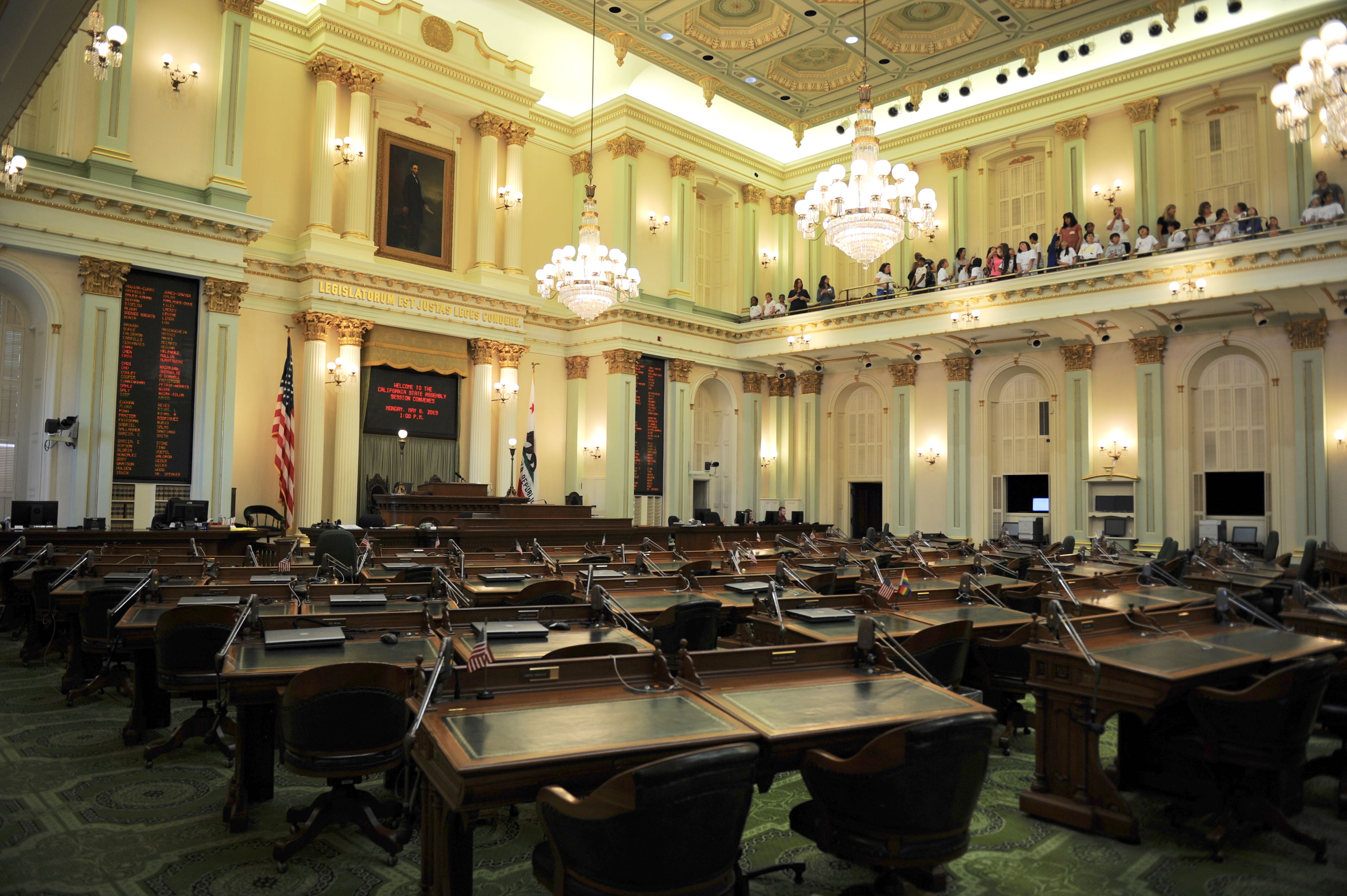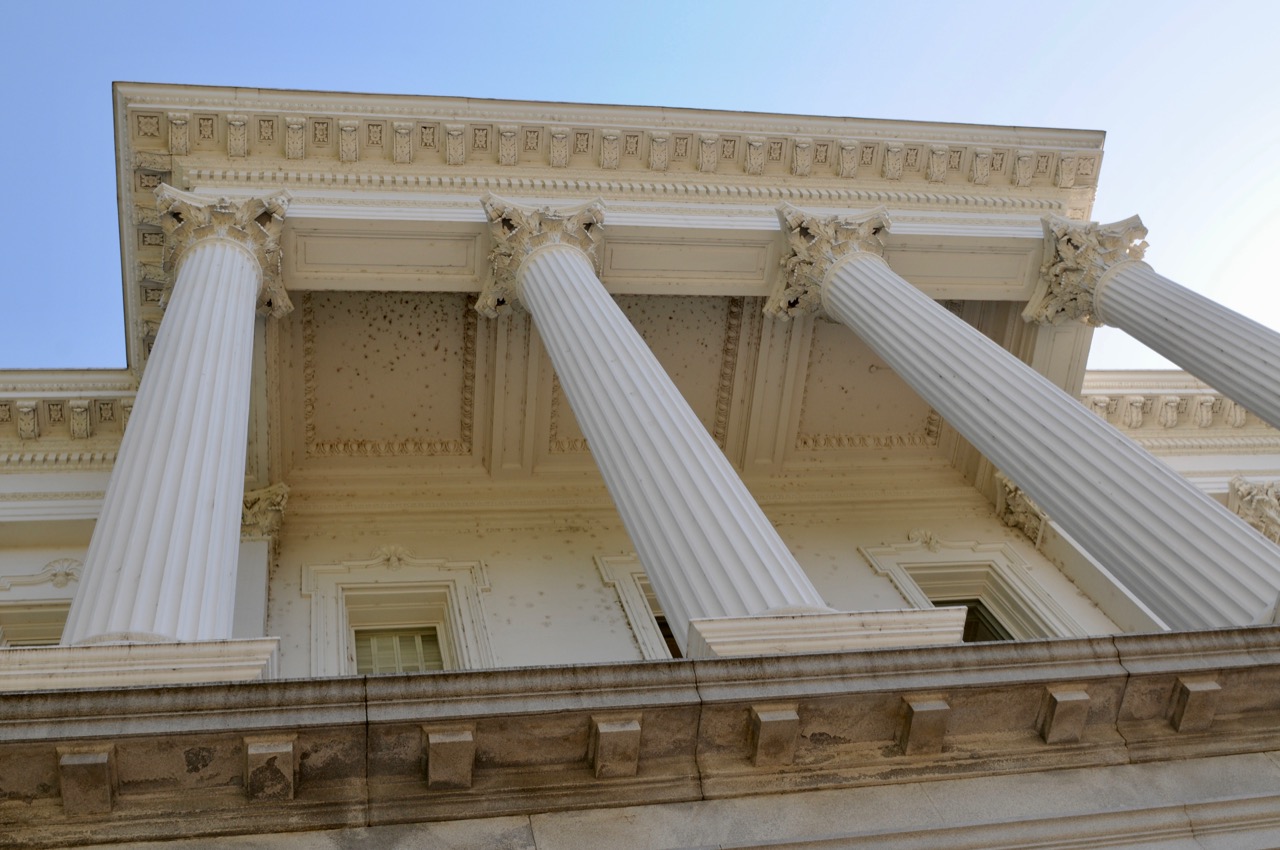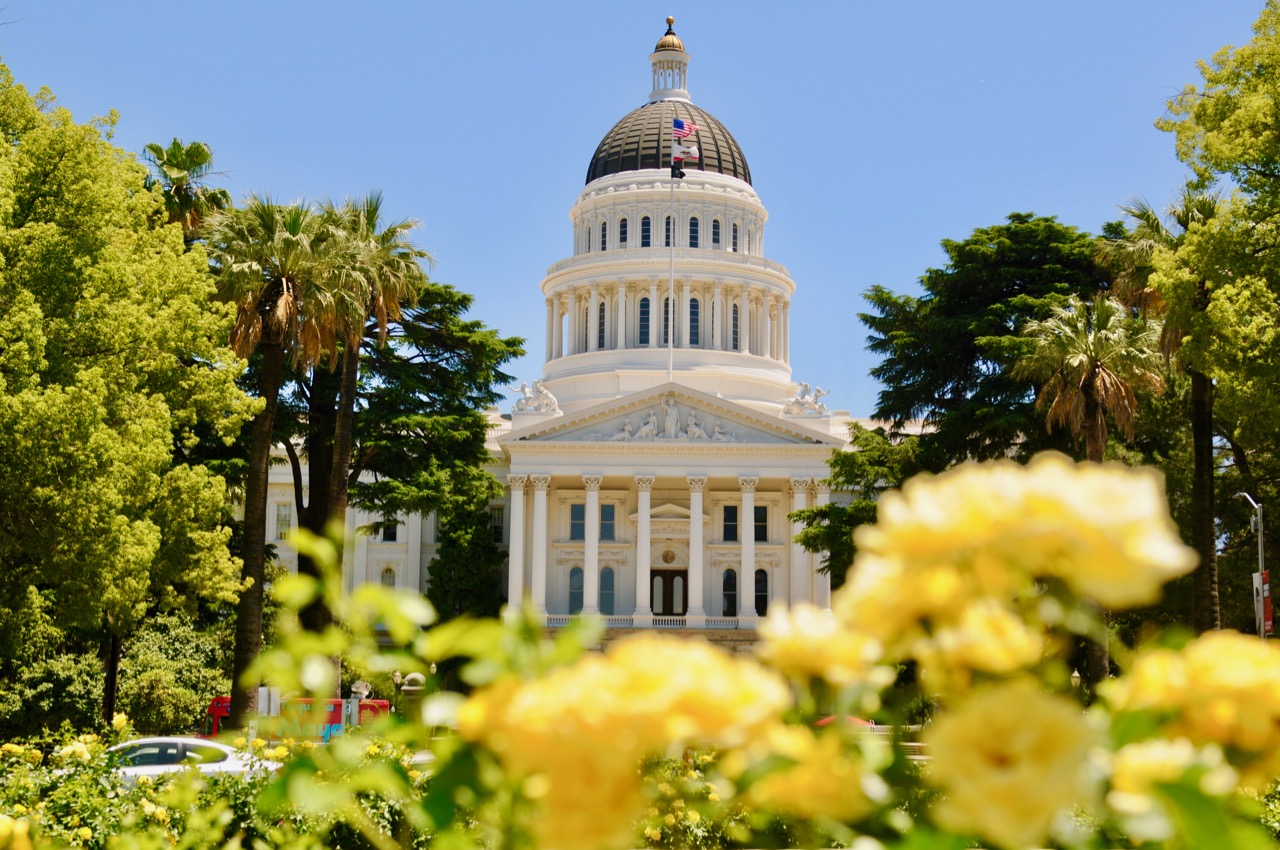
Late afternoon aerial view of the Laguna Beach, California coastline. (Photo: Matt Gush, Shutterstock)
Ex Uno Plures: The Destruction of the Common Frame of Reference
Humans must remember how to be humans again
By Thomas Buckley, October 9, 2023 12:14 pm
E Pluribus Unum – out of many, one.
That has been the national aspiration since its founding – creating commonality while exulting individuality, building an expansive framework within which the people can thrive.
In other words, creating common frames of reference for everyday life that allow for personal interpretation but still create societal bonds.
Ex Uno Plures – out of one, many.
That is the state – the exact opposite of the original American intent – that society finds itself in today.
This disintegration had been slowly happening for a generation, but it was the pandemic, with its concomitant lockdowns, fears, vilifications of the other, destruction of personal agency, and its overriding focus on the self that has immeasurably sped up the process.
There are no common frames of reference left on which people can even start to build civility, trust, and an appreciation of other people with different thoughts and ideas and hopes and dreams.
From the political to the prosaic, what could formerly be described as “water cooler talk” is simply gone and with it places to create commonalities – agreeable or even disagreeable.
The process started some time ago and it started in the media. It was once very specifically a place of commonality – in order to generate the most advertising revenue the stories were created for the widest possible audience. It is true that most outlets were small-l liberal leaning, but none of them simply made things up or sold opinion as news. The nightly newscasts and “Sunday shows” also followed this formula – agree or disagree, things could be discussed.
More prosaically, television played a significant role in setting sharable benchmarks – Carson monologues, “did you see that horrible nursing home on ’60 minutes?,’” SNL jokes, and the last episode of Seinfeld was such a big deal that other sitcoms made shows about it.
Not everyone was literally or figuratively tuned in, but almost everyone had heard of things other people had as well.
Even more prosaically, the weather was a nice neutral conversation starter on which to potentially build a relationship. Due to the debate over climate change, that is obviously no longer possible.
None of this is a call for a life of gray pablum, enforced moderation, or anything of that ilk, but the societal touchstones dynamited by the pandemic must be recreated if the culture is to fully recover.
In other words, humans must remember how to be humans again.
Once marketers realized that you didn’t need to appeal to everyone and that there was real – and more reliable – money in niches, the mood began to change. The explosion of news and entertainment options was caused by technology, of course, but also this realization. Formerly, if you didn’t have 10 million people watching your sit-com you were gone – now 6 million viewers puts your show at the top of the charts.
The niches, or silos, began to multiply – people began to watch the news channel that agreed with their pre-conceived notions. People began to create their own “playlists” lest they ever hear a song they don’t immediately like. People began to only involve themselves in activities where they knew they would not be challenged, think thoughts they already wanted to think, and actively remove from their lives anything contradictory.
Socrates cried.
California is – as always – a bit different. Always a diverse and dynamic state, there were fewer direct commonalities available. But there was one, one overriding all others – the dream.
Los Angeles loathed San Francisco, San Francsico loathed Los Angeles, the central valley was somewhere food came from, the hippies lived on the beach or on the hills, the liberals lived in Berkeley, the nerds lived north of San Jose, and the conservatives lived in Orange County, but everyone believed in the California Dream. The uniqueness of the physical place, the uniqueness of the sense of risking and re-starting, the uniqueness of knowing California was unique – these commonalities held the state together.
Being a Californian was different and that almost tribal – a tribe anyone could join – sense lent an underlying unity to the apparent surface differences.
Not anymore – California is just another place, the Dream shattered like so many syringes on the sidewalks of the Tenderloin or minds on Skid Row. Sacramento decreed everyone must be divided, parsed, ignored, coddled, vilified. And the people who held so tightly to the Dream and actually made the Dream happen have left.
Now that California is just like anywhere else, the almost sub-atomic bond that had been created has been destroyed and along with it any sense of commonality and the joint frame of reference that can be used to bridge divides and keep the power of the legislature’s sociopaths at bay. Personal pathologies would not become public law and the Dream would not have been so purposefully denigrated and thwarted if that joint understanding still existed.
But at least California is still first in something and spreading its fight against what holds society together nationwide.
The examples of the elimination of common frames of reference are innumerable, but some are more obvious than others:
Politics – Our democracy
Family and Friends – Cut them off if they do not agree with you.
Media – My news bubble is the correct bubble and nothing else matters.
Culture – I am me and do not stop me from being me even if I am destroying myself.
Religion – Don’t even mention it.
Censorship – Okay if it’s done by my side because that makes it for the common good.
A hundred of years ago, Friedrich Nietzsche posited that this ideological void would inevitably occur once God was out of the picture. Believer or not, in America the Judeo-Chrtian ethic formed one of the greatest common frame of reference. People of other faiths were not offended by “Charlie Brown’s Christmas” special, for example. Every time a movie dealt with the devil the stars call in a Catholic priest, not a Unitarian minister, no matter what religion they are (actually, this seems to be true still) and no one blinked an eye.
Now uniting faiths are replaced with divisive ones based on inherently divisive secular concepts, leaving no room for nuance, discussion, and debate.
And all of these traits were infinitely expanded by the pandemic as people seemed to forget how to be, well, people. The physical and psychological isolation imposed has not only stunted the educational and emotional growth of children, but it has also reverted millions to almost an adolescent state of demanding to be told what to think while simultaneously being allowed to do anything they want without fear of consequence.
Little things are eminently noticeable – standing in line is different because they are now ignored by people who cannot – or will not – remember the idea of civility. Classroom of college kids now act like fifth graders. Theft is rampant. And the chaos is only growing as there is no common frame of reference with which to push back with, nothing that will remind everyone how to be a human.
The law was once a bedrock commonality, a frame of refence that – for all its faults – could be relied upon. That has been purposefully obliterated by the idea that the law should be applied equally, that the law – originally intended for everyone – be modified on a case-by-case basis in order to be fair to the individual who runs afoul of it. There were always – and still are – people who believe they sometimes really are above the law. But now people are encouraged to believe they are beyond the law, stripping that frame of reference of any common use.
The pandemic response – besides all of the other evils it caused – bloomed millions of sociopaths now let loose in society. Utterly selfish, incapable of understanding even the existence of others, and determined to get theirs – hence the crime – while they still can before another lockdown, the mindset not only lacks a frame of reference but actively seeks to destroy any as sociopaths cannot abide personal limits.
The lockdowns not only directly caused the problem – people cannot build or maintain common frames of reference in isolation – but also exacerbated existing tendencies a functioning society and/or typical impulse control would temper.
In her piece in The Spectator, Julie Birchill points to Britain’s theft problem as the result of the mentality bred in lockdowns. “The lonely became lonelier, the lazy became lazier, and the crazy became crazier,” Birchill wrote. “If the idle and parasitic can carry on attacking the industrious and productive without fear of punishment, we will turn from a nation of shopkeepers into a nation of shoplifters.”
That parasitic idleness was created – or at least reinforced – by a raft of pandemic policies, mostly involving forcing people to stay home from working and getting them used to government assistance programs.
And once a certain point has been passed, when the pointless viciousness, the disregard of others, and whipsaw chaos becomes too much there will be one place a beaten and deflated society will turn to if it wants the problem solved immediately at any cost: the government.
The pandemic has created a Weimar Republic of the mind, primed and ready for someone – no matter who it is – with a common frame of reference – no matter what it is – to be hailed as the savior.
Fade to black.
- Benefit Fraud Problems and Solutions - November 7, 2024
- A Little Exit Poll - November 5, 2024
- Tomorrow’s Headlines Today! - November 5, 2024





Thomas: First of all, happy Indigenous People’s Day! Regarding your essay, did California or the US ever truly have a “common frame of reference” as you describe it? Before the Civil Rights movement, back in the day when it was acceptable to tell jokes about girls, ethnic minorities, disabled people or LGBTQ+ people, there was a “privileged frame of reference” that (as you describe) dominated media. Not everybody bought into that frame of reference, but anyone with a dissident perspective had very limited opportunities to speak out. Minority perspectives were suppressed or kept in the closet. A lot of the social distress you describe comes from having a good hard look into that closet, or having to deal with whatever emerges from it.
If it’s any consolation, there was an earlier generation of people who suffered through much more severe social distress. Today we honor them on Indigenous People’s Day.
Does anyone recall watching Huell Howser, California’s Gold? Check it out on YouTube, it’s worth watching to restore to faith in CA. Every episode celebrates a small slice of the California Dream. I’m confident California will find it’s gold again.
“A Man of Faith Who Changed History”
https://spectator.org/faith-columbus-changed-history/
A common frame of reference can only exist if the reigning socioeconomic entity of governance assures objectivity throughout the entire paradigm; administered equally and fairly to all and with alacrity.
We are witnessing healthy human reaction to imminent harm thus skills of self preservation are automatically invoked; a normal psychological reaction.
The disgruntled people referenced have been literally driven to nihilism to survive as they know albeit subliminally the entities, governmental and personas possessing dominion over them are emperors without clothes, empty suits, frauds leading them to destruction.
Endless wars, deficits, strife, conspiratorially invoked chaos has triggered the citizenry to prepare themselves for the pending hunger fight and rightfully so.
Those operatives who continually feign sincerity and conjol us with optimism while secretly awaiting the word to head for their bunker are being revealed for what they are.
The indigenous people who preceded us weren’t burdened with com
Such a fine and thoughtful column, Thomas Buckley. The theme certainly resonated with me and I know so many many others are now grieving this very loss and wondering how it can be reconstructed.
It’s late now, but I want to read your column again, more slowly and carefully, early tomorrow morning. It’s an important one.
Remember social organizations? No, not social media, social organizations, where people came together, face to face, rubbed elbows, chewed the fat, agreed and disagreed, and through it all forged common bonds that withstood so much? Examples: Masons, Easter Star, Lions, Elks, DeMolay, Rainbow, Jobs Daughters, Scouting, Rotary, Kiwanis, VFW, Moose, and many more. There was glue in those organizations that helped keep things together once upon a time. That was then.